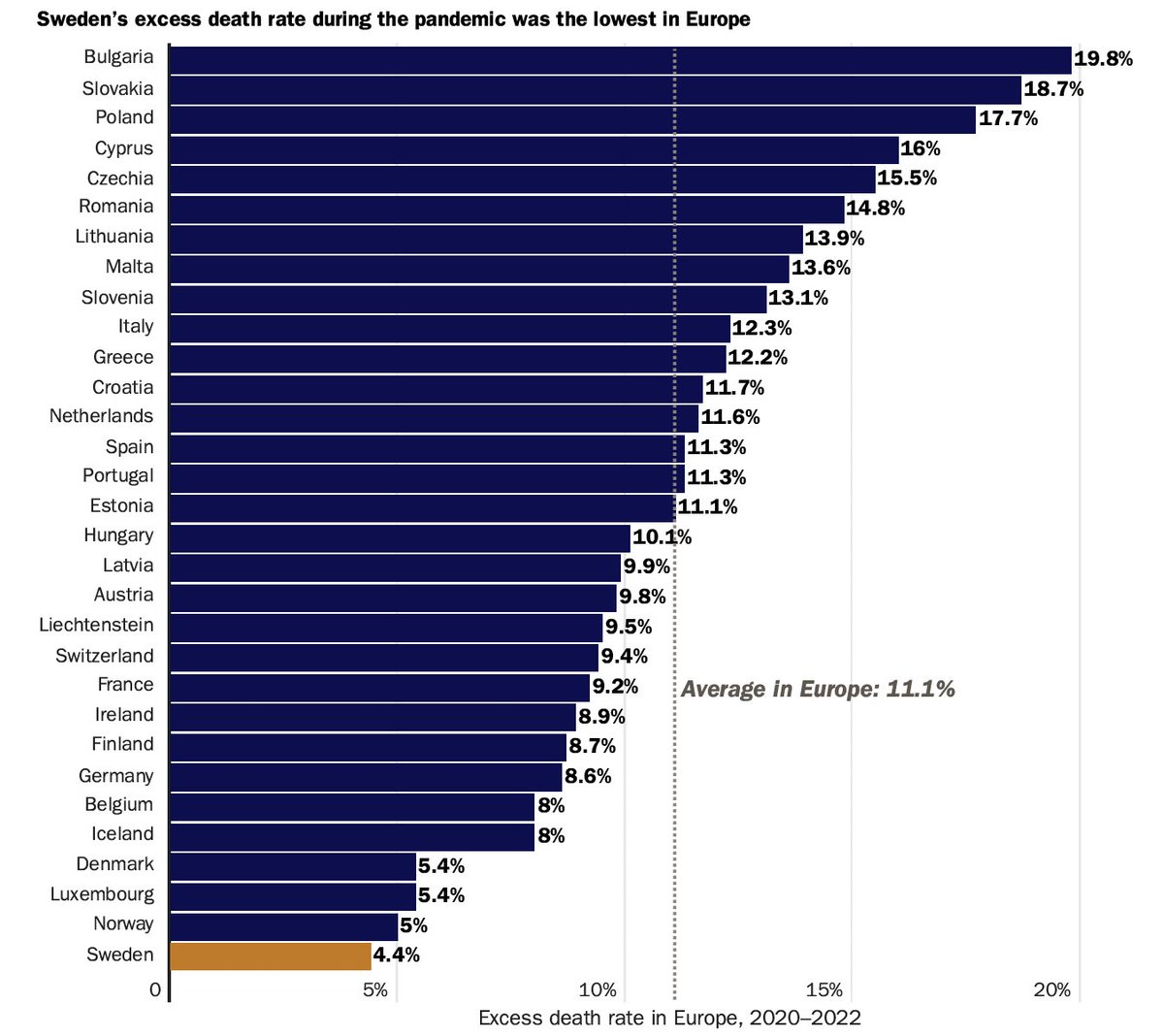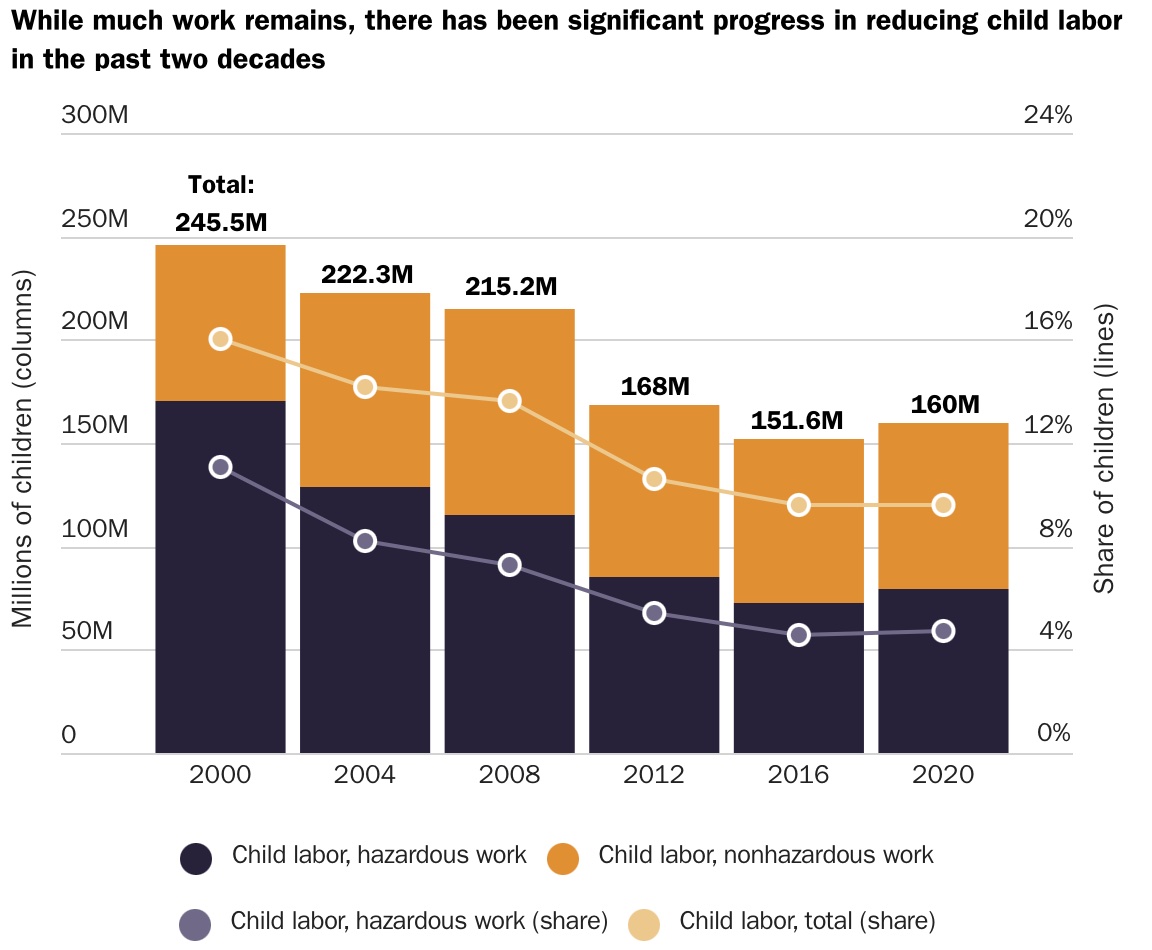How did Sweden fare during the pandemic? Back then, the world was shocked by our openness. New York Times called us a “cautionary tale”, Trump said “Sweden is suffering very greatly”. But we never heard how it all turned out.
Now I’ve looked: Sweden did better than others. 🧵
Now I’ve looked: Sweden did better than others. 🧵

Sweden had no orders to stay at home and no mask mandates. Schools, offices, factories, restaurants, libraries, shopping centers, gyms and hairdressers stayed open. Our Social Democratic Prime Minister said that individual responsibility was preferable to government control. 

As expected, the economy benefited. The world economy was 2.9% smaller late 2021 than it would be according to forecasts before the pandemic; the Eurozone 2.1% smaller, and the U.S. 1.2% smaller.
The Swedish economy was 0.4 percent BIGGER than forecast before the pandemic.
The Swedish economy was 0.4 percent BIGGER than forecast before the pandemic.

School kids also benefited. The U.S. Department of Education concludes that half of America’s students began 2023 a full year behind grade level in at least one subject. In sharp contrast, Swedish elementary schoolers suffered no learning loss during the pandemic. 

Did these gains come at the expense of health? Surprisingly, no. Sweden was an outlier in terms of policy, but not in terms of Covid-19 mortality, and only suffered 7% of the deaths predicted by the kind of models that scared other countries into lockdowns. 

However, counting COVID-19 deaths is tricky, since countries have different definitions. That is why we were told to wait for data on “excess deaths” – mortality compared to a previous period or expected value. Now we have this data, and this is where it gets really interesting:
Sweden’s excess death rate during the three pandemic years, 2020–2022, compared to the previous three years, was 4.4%. Remarkably, it is the lowest excess mortality rate of all European countries, including our Scandinavian neighbors. 

There are different ways of adjusting for age and previous trends, and according to some methods, Denmark beats Sweden to first place, but all methods show that Sweden had one of the lowest rates.
America’s excess death rate was more than twice as high as Sweden’s.
America’s excess death rate was more than twice as high as Sweden’s.

Swedes turn out to have adapted their behaviors to the pandemic, but voluntarily.
It suggests that it was not Sweden, but the lockdown countries that engaged in a reckless experiment, depriving millions of liberties without a discernible benefit to public health.
It suggests that it was not Sweden, but the lockdown countries that engaged in a reckless experiment, depriving millions of liberties without a discernible benefit to public health.

I have just published a Cato Policy Analysis paper about these little-known findings, “Sweden during the Pandemic: Pariah or Paragon?”
You can read it here: cato.org/policy-analysi…

You can read it here: cato.org/policy-analysi…

• • •
Missing some Tweet in this thread? You can try to
force a refresh













